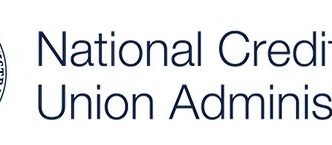Updated policy designed to help credit unions meet members’ evolving needs
By CHERYL LAWSON, JMFA EVP-Compliance Review
As consumers continue to struggle to make ends meet during the current economic crisis, regulatory agencies are examining rules and regulations to ensure credit unions have the strategies and tools they need to meet their members’ changing financial needs. During its December 2020 meeting, the National Credit Union Administration (NCUA) approved a Proposed Rule that amends 12 CFR § 701.21(c)(3). The proposal will modify the maximum time a Federal Credit Union (FCU) may allow a member to cure an overdraft.
In the current rule, FCUs must have a written policy that establishes a time limit not to exceed 45 calendar days for a member to either deposit funds or obtain an approved loan to cover each overdraft. Given the extraordinary challenges COVID-19 poses, the NCUA has been concerned that this time limit “has and will continue to be especially detrimental for FCUs and their members.” The rule change removes the prescriptive 45-day limit and replaces it with a requirement that the written policy establish a specific time limit for curing an overdraft that is both “reasonable and applicable to all members.”
This action will remedy a discrepancy between the 45-day limit imposed on FCUs for curing an overdraft and the Interagency Guidance on Overdraft Protection Programs, adopted by NCUA in 2005. This guidance suggested a maximum of 60 days before an overdraft is charged-off. As the pandemic continues, the policy modification also demonstrates the NCUA’s effort to increase FCUs’ flexibility to take positive and proactive actions to manage or mitigate adverse impacts on members, while maintaining safe-and-sound operations.
Supporters of the rule change argue that the rigidity of the old “one-size-fits-all regulatory requirement makes it difficult for individual FCUs to align their overdraft charge-off policies with other charge-off policies. The new rule would give institutions the ability to determine an appropriate time frame that meets their unique situation. However, some consumer groups and new NCUA Board Chairman Todd Harper oppose the proposal and are calling for it to be reviewed further to address additional questions regarding its benefits to consumers.
Overdraft programs protect a consumer’s ability to purchase goods and services—permitting a transaction to be processed when a payment exceeds the consumer’s available balance. Credit unions offer overdraft programs as a convenience and accommodation to members who choose to opt in to access the peace of mind these services provide.
As you continue to offer solutions that help members who are struggling to make ends meet, it is imperative that your overdraft policies are in line with the latest regulatory expectations. If you have questions about the most recent actions on policy adjustments or how to improve your program’s overall results, JMFA can help.
As one of the most trusted names in the financial services industry, JMFA has helped credit unions of all sizes better serve their members’ needs and improve compliance peace of mind with a fully disclosed overdraft solution and the industry’s only 100% compliance guarantee. To learn more, please contact a representative in your area or call us at (800) 809-2307.






